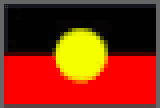Client Motivation for Therapy Scale CMOTS
Client Motivation for Therapy Scale CMOTS overview
Creator and Context
The Client Motivation for Therapy Scale (CMOTS) is a psychometric tool designed to measure a client's motivation for therapy. It assesses various dimensions of motivation, including Intrinsic Motivation, four forms of Extrinsic Motivation (integrated, identified, introjected, and external regulation), and Amotivation.
Developed by researchers in the field of psychology, the CMOTS is grounded in Self-Determination Theory. It is used to understand the motivational factors that influence a client's engagement in therapy.
Presenting Conditions
CMOTS measures the degree and type of motivation a client has for therapy, which is crucial in predicting engagement and outcomes in therapeutic settings. It evaluates:
Intrinsic Motivation: Engaging in therapy for inherent satisfaction.
Extrinsic Motivation: Engaging in therapy due to external factors, which is further divided into:
Integrated Regulation: Therapy aligns with one's values.
Identified Regulation: Therapy is important for personal goals.
Introjected Regulation: Motivated by internal pressures.
External Regulation: Motivated by external demands.
Amotivation: Lack of intention to engage in therapy.
Administration
The CMOTS is a self-report questionnaire. Clients rate a series of statements regarding their reasons for attending therapy on a Likert scale.
Desired Audience
This scale is suitable for use with a wide range of clients in therapeutic settings, including adolescents and adults seeking psychological therapy.
Understanding a client’s motivation for therapy can help therapists tailor their approach, enhance client engagement, and potentially improve therapy outcomes.
Considerations
Motivation levels can fluctuate, so the CMOTS may need to be administered at different points during therapy.
It is important to consider cultural and personal factors that might influence a client's responses.
How to score the Client Motivation for Therapy Scale CMOTS
Conducting the assessment
Clients respond to each item based on their personal motivation for attending therapy, using a Likert scale ranging from strong disagreement to strong agreement.
Interpretation
Responses are scored on a Likert scale, and the scores for each motivation type are summed. Higher scores in a specific category indicate stronger motivation of that type.
High intrinsic motivation or integrated regulation scores are generally seen as favourable.
High scores in amotivation or external regulation may indicate barriers to effective engagement in therapy.
Clinical Considerations
Use CMOTS scores to discuss and address barriers to therapy.
Tailor therapeutic interventions based on the client's motivational profile.
Reassess motivation periodically to track changes and adjust the therapeutic approach accordingly.
Client Motivation for Therapy Scale CMOTS use cases
Assessing client motivation at the onset of therapy.
Monitoring changes in motivation throughout the therapeutic process.
Research studies examining the relationship between therapy outcomes and client motivation.
Category
Feedback
Research Summary
Pelletier, L. G., Tuson, K. M., & Haddad, N. K. (1997). Client Motivation for Therapy Scale: A measure of intrinsic motivation, extrinsic motivation, and amotivation for therapy. Journal of Personality Assessment, 68(2), 414-435.
Ryan, R. M., & Deci, E. L. (2000). Self-determination theory and the facilitation of intrinsic motivation, social development, and well-being. American Psychologist, 55(1), 68.










